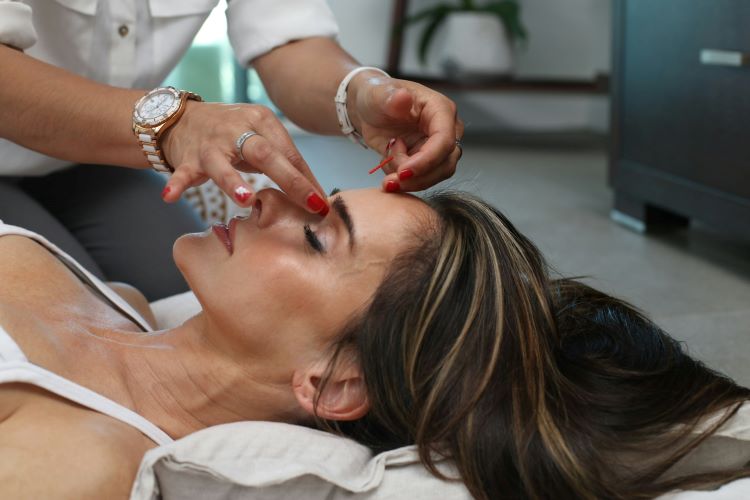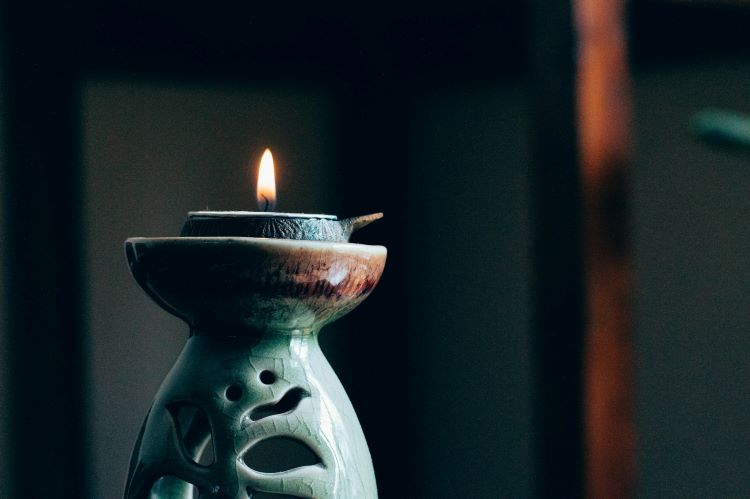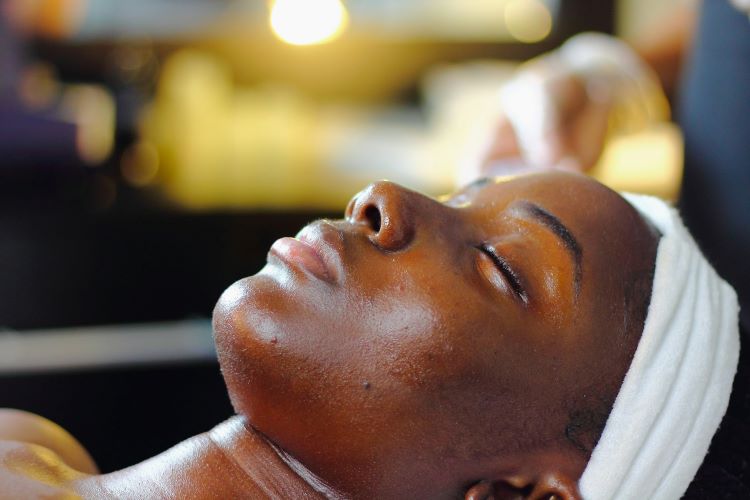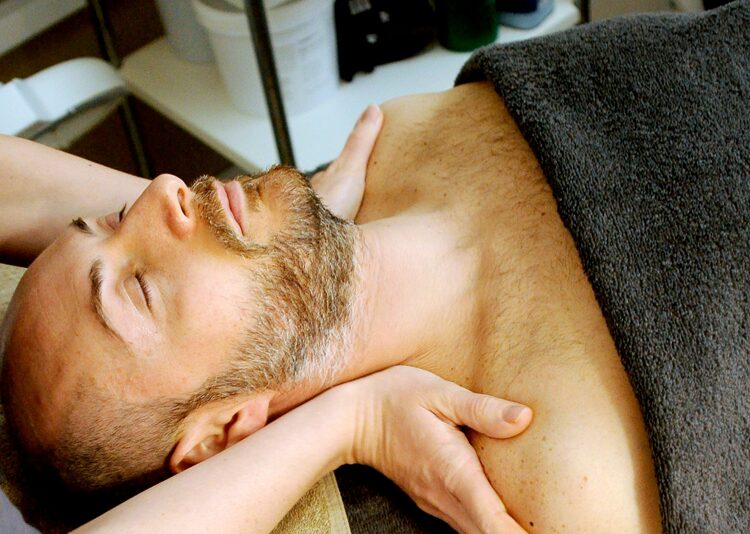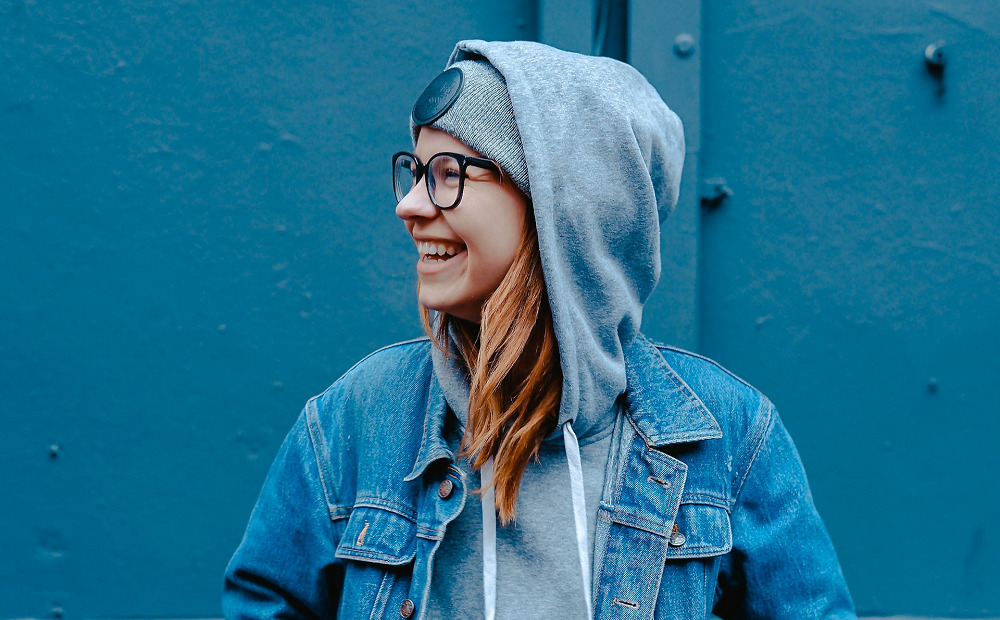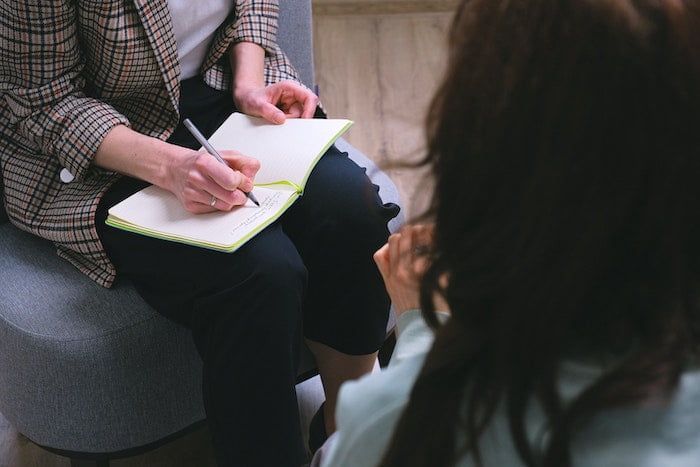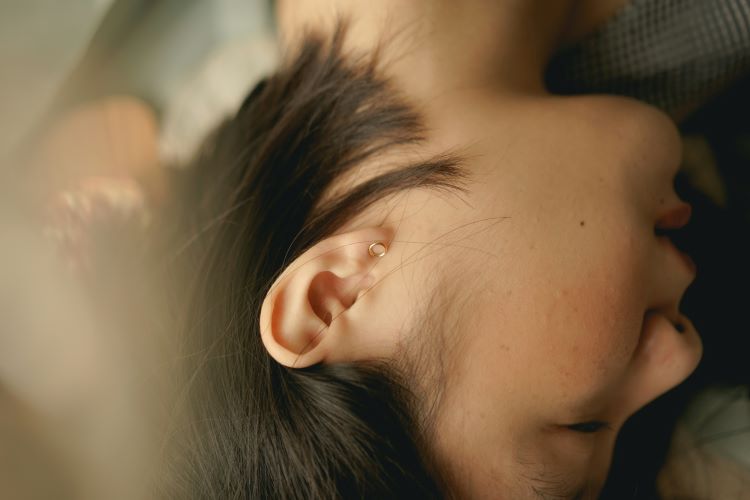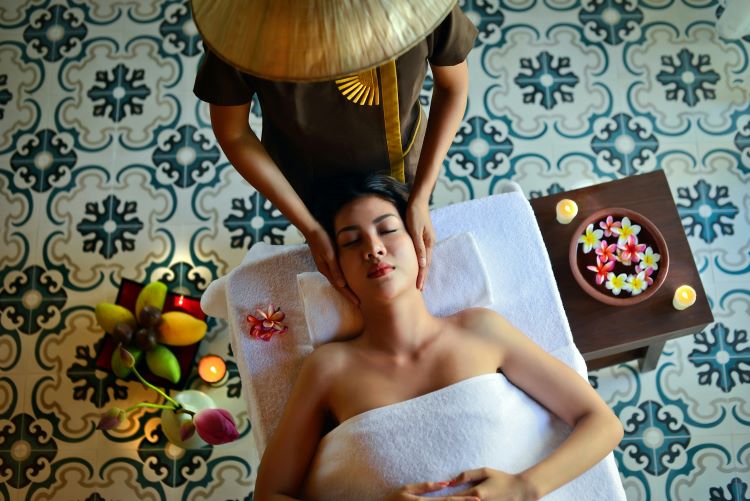Click the links below for more information about acupuncture
- What is acupuncture?
- Acupuncture as a holistic treatment for addiction
- Acupuncture’s origins in China
- Alternatives to acupuncture
Addiction is a disease, and overcoming this can be a long and difficult journey.
Often seen as a holistic and alternative method of treatment, acupuncture therapy has been found to be effective at mitigating many of the more unpleasant withdrawal symptoms during detoxification.
This includes repressing and preventing cravings during the recovery process.
What is acupuncture?
A traditional Chinese medicinal treatment, acupuncture involves inserting very fine needles into the skin and is focused on the stimulation of specific pressure points.
It is thought that there are around 2000 of these pressure points in the body including the ear, forehead and feet.
Once inserted, the acupuncture needles are manually or mechanically manipulated to induce a response from the body that can effectively treat many physical and mental ailments.
It is important to note that acupuncture should only be performed by a trained and experienced practitioner in a sanitised and regulated environment.
Most people experience little to no pain during this practice, and acupuncture is regarded as an effective treatment for a number of issues ranging from anxiety to addiction. In fact, the World Health Organisation lists acupuncture as an effective treatment for drug abuse. [1]
Where did acupuncture originate?
Originating in China, acupuncture has also been used throughout history to relieve the symptoms of a wide range of chronic conditions, and promote health and inner peace.
Today, it’s considered an alternative medicine, but studies report good efficacy at promoting:
- Healthy lungs and other organs
- Good blood circulation
- Stopping smoking
- Recovery from addiction
Many people will need to attempt a variety of treatment methods until they discover an effective combination that can result in long-term recovery, and some of these approaches will be less traditional than others.
How does acupuncture help treat addiction?
While it may seem surprising that a topical treatment has the ability to treat substance addiction, many people have found relief through the practice of regular acupuncture.
Each time a needle is inserted into the skin the body will respond to the tiny injury by increasing circulation, activating the immune system and managing any pain.
These responses are thought to generate many benefits to the body and brain without the restriction of an actual wound.
Acupuncture can cause the body to release a number of chemicals including endorphins, serotonin and dopamine.
This can mitigate many of the more unpleasant withdrawal symptoms experienced during recovery from substance addiction and may even help to reduce cravings, as the practice of acupuncture can in some ways mimic the sensations of drug use.
It has also been discovered that the effects of morphine can be effectively blocked by the practice of acupuncture, making the idea of ingesting heroin and other opiates seem less appealing to many Individuals. [2]
The Chinese have a different way of viewing this treatment, believing that acupuncture helps to balance the yin and yang energies within the body.
In Chinese culture it is thought that an addiction occurs due to a lack of yin energy, so acupuncture is used to replenish the body’s supply of this energy and restore balance once again.
Which addictions can be treated with acupuncture?
Acupuncture is often recommended within addiction treatment alongside more traditional methods such as counselling and detoxification and can be an effective complementary therapy.
While relatively unstudied compared to many other addiction treatments, acupuncture is thought to help with the following addictions:
- Opiates
- Cocaine
- Alcohol
- Nicotine
- Morphine
- Prescription medication
It is important to note that acupuncture is not a cure, and should be viewed as a complementary treatment used alongside individual and group therapy.
It is unlikely that the practice of acupuncture alone will be effective at treating a substance or behavioural addiction.
More research is needed to determine the effectiveness of this treatment on other forms of substance abuse as well as behavioural addictions such as video games, food and gambling.
What are the benefits of acupuncture for addiction?
While less traditional than other forms of addiction treatment, the practice of acupuncture has a number of benefits that extend beyond the effect that it can have on addiction or dependency.
Common benefits of acupuncture include:
1. Acupuncture can block the effects of certain substances
Some studies have shown that the practice of acupuncture may have the ability to block the effects of morphine, which could prove extremely helpful for individuals dealing with opiate addiction.
However, as a result of this effect, acupuncture may not be suitable for those who have been prescribed a morphine-based medication for pain management.
2. Acupuncture can help to manage withdrawal symptoms
Acupuncture can induce the body to release a number of natural chemicals including serotonin and dopamine, commonly known as the ‘happy hormones.’
When performed during the process of detoxification, this treatment can manage many of the more unpleasant withdrawal symptoms and allow the individual to move through the initial detoxification phase with a lower chance of relapse.
3. Acupuncture can relieve stress and anxiety
Due to the above effects, acupuncture has also been found to have a calming and relaxing effect which can help to soothe feelings of anxiety and stress.
Many people turn to substances such as drugs and alcohol in an attempt to avoid unpleasant emotions and sensations, so a regular acupuncture session can help to treat these feelings at their source and reduce their effects.
4. Acupuncture has low risk of side effects
When performed by a trained, experienced acupuncturist in a sterile and professional environment, this form of addiction treatment comes with very few side effects particularly compared with common medications that are often prescribed to treat addiction.
What are the possible side effects of acupuncture?
- Bleeding
- Bruising and soreness at the insertion sites
- Dizziness and fainting
- Nerve damage
- Convulsions
- Infection
It must be noted that although millions of people receive acupuncture every year, very few people report experiencing serious side effects. [3]
5. Acupuncture is suitable for almost everyone
As a relatively safe and accessible treatment method, many people can benefit from the practice of acupuncture to treat addiction.
Who is acupuncture not suitable for?
However, certain people should seek medical advice before embarking on an acupuncture treatment plan. These include:
- Pregnant women, as acupuncture can potentially induce labour
- Anyone fitted with a pacemaker, as any electrical pulse can interfere with this device
- People who have a bleeding disorder, you may begin to bleed at the insertion sites
Besides those listed above, acupuncture is suitable for most people regardless of age, gender, ethnicity, lifestyle, and physical appearance.
What does a typical acupuncture session look like?
An acupuncture session as part of addiction treatment will begin with an assessment, with the practitioner asking a number of questions regarding your lifestyle, addiction, and emotions. They may also examine your skin, tongue, and pulse.
This will allow them to gain a greater understanding of the issues that you face and begin to formulate a personalised treatment plan.
Once the assessment is complete, you will be invited to lie down in a comfortable position while the practitioner inserts a number of thin, flexible needles at various depths throughout specific pressure points located on your body.
Once they have been successfully inserted, the practitioner will often physically manipulate the needles in order to induce a response from your body. This should not feel painful, although some people report experiencing a slight aching sensation. [3]
With the needles remaining inserted, you will rest quietly for the remainder of the session before they are gently removed. Many people feel energised and animated after an acupuncture session, while others may feel relaxed and drowsy.
You will generally not experience any side effects as a result of this practice.
It may take a few sessions for you to begin to experience the benefits of this form of addiction treatment, and as mentioned above it should always be used in combination with more traditional methods as opposed to a singular treatment.
Can I have acupuncture without using needles?
Many people recovering from an addiction, particularly one that involves the use of needles and injecting, may be hesitant to attempt a treatment method that involves the insertion of needles while others may have a specific fear or phobia of needles and sharp objects.
The latter group may be reassured to learn that the needles used during the acupuncture process are extremely thin and flexible, around the size of a strand of hair, and will be cleaned and sterilised within a professional environment.
Thankfully there are a number of ways to perform acupuncture without the use of needles, with some of the more common methods listed below.
1. Ear seeds
Used in acupuncture therapies that are specifically focused on the ear, these small seeds are placed on certain points within the ear in order to stimulate specific pressure points.
They can be crafted from metal, ceramic or even obtained from a natural herb and are usually adhered using a small piece of tape.
It is possible to apply ear seeds yourself, but the practice is more effective when applied by a trained acupuncturist.
Ear seeds have been shown in peer-reviewed studies to relieve anxiety.[4]
2. Electroacupuncture
Similar to traditional acupuncture, electroacupuncture provides the same benefits but uses a mild electric current to stimulate various pressure points.
A handheld electrode is used to provide the treatment, with most people reporting little to no discomfort during this procedure.
If you have a fear of needles it may be helpful to try electroacupuncture during the first few treatments, only switching to traditional acupuncture when you feel comfortable with the process.
Clinical studies have supported evidence that electroacupuncture can be used to treat pain, depression, anxiety, spinally induced muscle spasm, stroke, gastrointestinal disorders, and drug addiction.[5]
References
[1] https://www.ncbi.nlm.nih.gov/pmc/articles/PMC4822281/
[2] https://www.ncbi.nlm.nih.gov/pmc/articles/PMC3296192/
[3] https://www.health.harvard.edu/medical-tests-and-procedures/acupuncture-a-to-z
[5] https://www.sciencedirect.com/science/article/abs/pii/S0006322397003946


